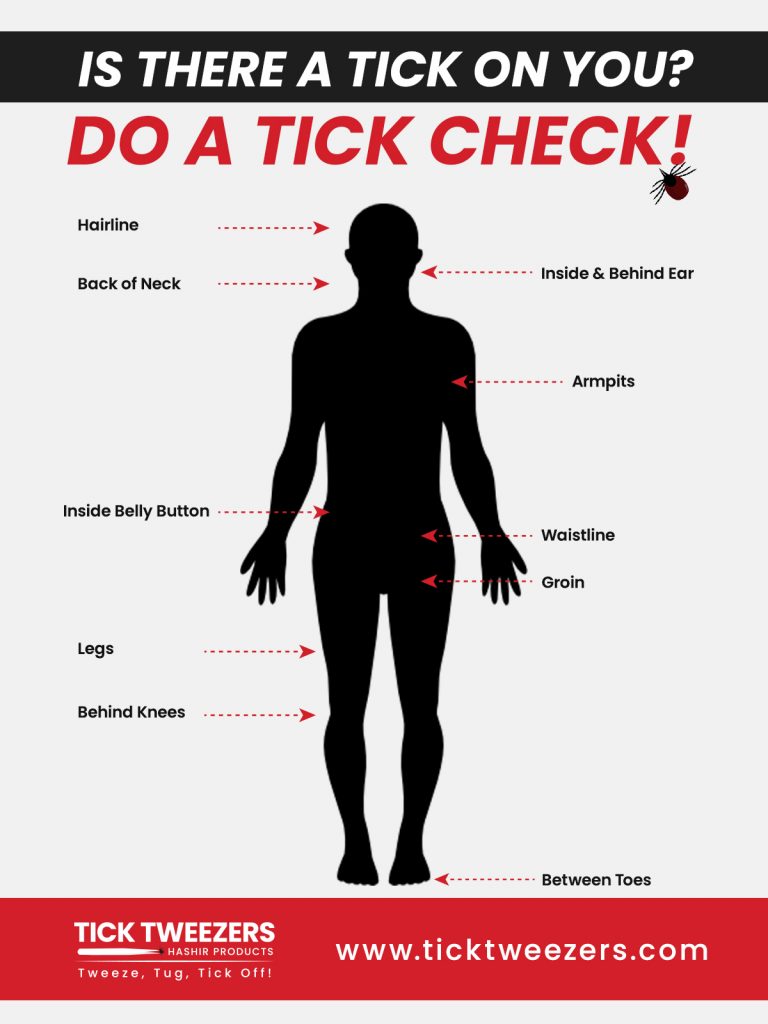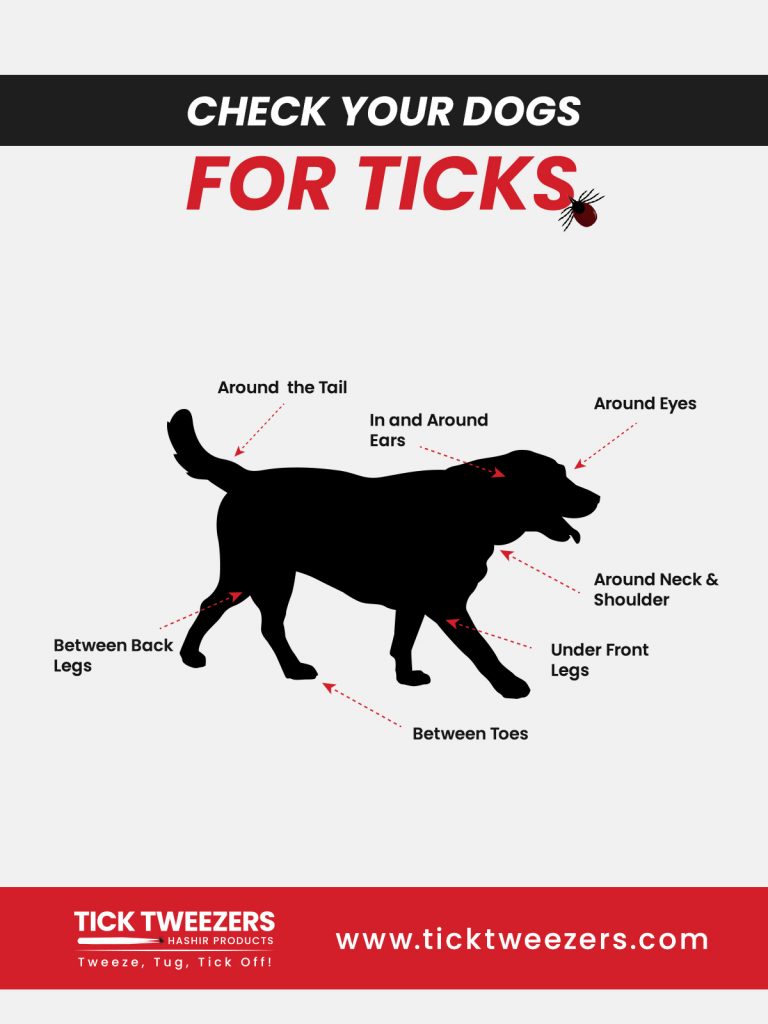Tick Check Yourself!
Performing Tick Checks
After spending time outdoors, it’s essential to conduct a thorough tick check for yourself and your children. Ticks can attach themselves to various parts of the body, so it’s crucial to thoroughly check all parts of the body where ticks are known to attach.
- Full Body Check: Remove clothing, preferably in a bathroom or a place with a mirror, and begin examining your body for ticks. Parents should also carefully inspect their children. Make sure to pay close attention to the following areas where ticks are most likely to attach:
- Under the arms
- Behind the knees
- Between the legs
- In and around the ears
- In the belly button
- In the hair
- Use Your Hands: Run your hands over your skin to feel any small bumps, especially in areas that may be hard to see.
- Look for Tiny Brown/Black Spots: Keep an eye out for tiny brown or black spots. Remember that ticks can vary in size depending on their life stage and feeding status.
- Tick Removal: If you find any ticks, it’s essential to remove them carefully. Refer to the “How to Safely Remove Ticks” for instructions for safe and effective way to removing ticks.
- Showering Within Two Hours: Taking a shower within two hours of coming indoors can help remove unattached ticks and allow you to thoroughly check your entire body.
- Treat Clothing: After removing your clothes, consider tumbling them in a dryer on high heat for 10-20 minutes. This will help kill any ticks that might still be attached.
Pet Tick Checks: A Important Reminder
Ticks can also affect our furry friends, so remember to check your pets regularly, especially after they’ve been outside.
- Run Your Fingers Through Their Fur: Gently run your fingers through your pet’s fur to feel for any small bumps or unusual lumps.
- Inspect Thoroughly: Pay close attention to specific areas on your pet’s body, such as:
- Around the eyes and ears
- Between the front and back legs
- Between the toes
- Around the tail
- Around the neck and shoulders
- Consult a Veterinarian: To protect your pets from ticks, consult a veterinarian for effective tick control options for dogs and cats (check out Protecting Pets From Ticks for more info)


